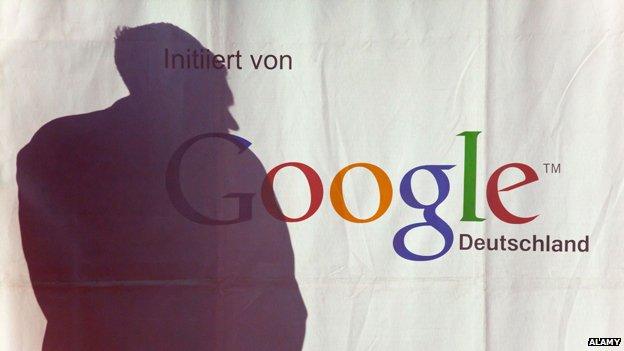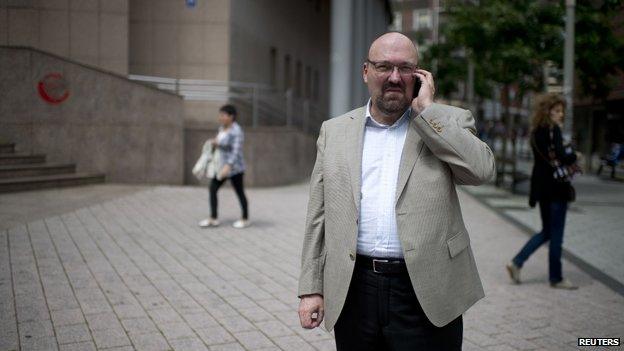US v Europe - a cultural gap on the right to be forgotten
- Published
- comments

The reverberations from this week's landmark European Court of Justice ruling on the right to be forgotten continue to be felt.
Legions of lawyers are still trying to work out what it will mean for the search engines, and for millions of EU citizens who may want to force them to remove links to their past online lives. And the cultural divide between Europe and the US appears wider than ever, with two very different views of how we should live our lives online.
On the one hand there is what you might call the web utopian view, held by the US internet giants and some in Europe who look to Silicon Valley for inspiration. This sees the ECJ ruling as unworkable, illiberal and just out of touch.
The Wikipedia founder Jimmy Wales, who divides his time between London and the US, explains to me why something like it could never happen across the Atlantic because of the constitutional guarantee of free speech: "This is not a debate the United States is even capable of entering into. You'd have to repeal the First Amendment - and that's like a religious artefact - so that's never going to happen."
He tells me this is not necessarily a new cultural gap but one that is being made evident for the first time. "In the past if you were in Germany you were never worried that some encyclopedia website based in the United States was going to name you as a murderer after you got out of jail because that was inconceivable. Today that can happen, so the cultural gap that was always there about the regulation of speech is becoming more visible."
But in Europe many politicians and regulators and some - though by no means all - privacy campaigners have welcomed the ruling. Mr Wales' point about local laws - which used to mean old convictions simply disappeared from the record after a certain time - is one of the reasons for that support.
Europeans who have been told that the internet is basically ungovernable - and if it does have guiding principles then they come from the land of the free - are expressing some satisfaction that court has refused to believe that.
Max Mosley, who has fought privacy battles with tabloid newspapers and Google over pictures of a sadomasochistic orgy, expresses particular satisfaction that the European Court decided the search firm was subject to local laws. When I talked to him as he emerged from a radio studio he was also exercised about the rehabilitation of offenders: "A principle accepted in most civilised countries. The internet shouldn't regurgitate things for ever."
And he refuses to accept the idea that the online world just cannot be regulated. "The internet is so new that the law hasn't caught up with it but eventually it'll be regulated like every other aspect of society and that's quite right."
So a battle between two views of freedom - the US belief that free speech trumps everything, and the European view that individuals should have some control over what the world knows about them. But there is something else in play here, a growing unease about the power wielded by what are nearly always US web giants over our lives.

Mario Costeja Gonzalez, the man who prompted this week's EU ruling against Google
Google, Facebook, Twitter and other firms that store and use vast banks of data about Europeans have all sought to deny responsibility for how people use and share that information. They also maintain that they are not media firms - which in Europe face strict regulation - but mere technology platforms enabling better communication. In Google's case that stance has come to bite it.
Media firms like the Spanish newspaper site at the heart of this test case, haven't been told to remove content. It is the "data controllers" - the search engines - which are in the court's sights.
Now there are obvious questions about the practicality of getting Google to decide which of billions of links to millions of European names should or should not be removed. The temptation for the company will be to automatically agree to all requests, rather than to set up a vast quasi-judicial bureaucracy to decide what is justified and what is not, and that could have a chilling effect on free expression.
But European web users, who have been told for so long that companies based in Silicon Valley cannot be told what to do in the UK or France or Germany, may feel a smidgen of satisfaction about the howls of outrage coming from across the Atlantic.